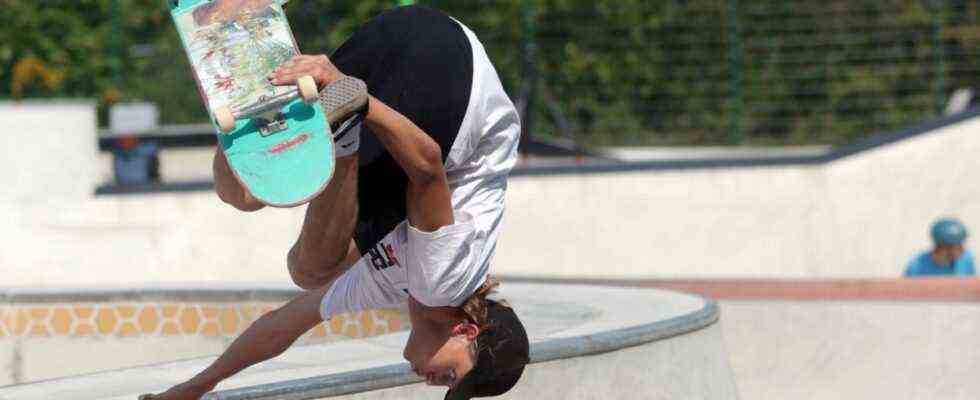Before the meeting of the local council on Monday evening, dozens of children, young people and parents had gathered at the entrance to the multi-purpose hall in Lenggries, all with masks. They had painted their demand in colorful letters on a sign: “We want a skate park,” it said. In the local council, the action in Corona times was not very well received.
A lively debate also developed about the occasion: high costs, liability issues and the operation of the skate park – these were the main problem areas that were addressed in the committee. The discussion intensified because parts of the Greens and the SPD accused the community of having some catching up to do in terms of youth work – something that was vigorously rejected by representatives of the CSU and Free Voters. In the end, everyone decided to postpone it: First, the initiators should specify their ideas, and the necessary framework conditions, such as the establishment of an association, should also be clarified.
The subject of skate parks is not new in Lenggries. A parents’ initiative had already campaigned for such a system in 2009, and there was an on-site meeting with former mayor Werner Weindl (CSU) on the fairground. However, the initiators refused to accept liability, and an association was not founded either. Two years later, the idea was taken up again and a location near the parish hall was considered, which Weindl rejected for reasons of noise protection.
Initiative from four boys
The latest foray into a skate park was made by four boys who had called for such a facility to be built in the citizens’ assembly in September. They collected 251 signatures for this. In October the local council asked the administration to gather information about skate parks in other local authorities.
The management of the community, Tobias Riesch, presented the results on Monday: According to this, the range is wide, depending on the size and equipment. For example, a 530 square meter facility in Peißenberg cost around 35,000 euros. The 1,000 square meter skate park in Bad Tölz came to 250,000 euros, and a facility of the same size in Schongau with mobile elements even came to 450,000 euros.
Mayor Stefan Klaffenbacher (FWG) sees the financing as one of the major sticking points. In view of the many large projects, he does not know “how we are going to finance it,” he said. A location would have to be found that, although easily accessible, should not be too central for reasons of emissions protection. In addition: “Who looks after the system, who assumes liability?” Asked Klaffenbacher. The founding of an association is necessary to secure the long-term existence. The community cannot do that, and building a skate park is not a compulsory task for the community.
Above all, the Greens saw it differently, complaining about deficits in youth work in Lenggries. “There is no public space where young people can meet without having to be a member,” said Nadia Tretter. Roman Haehl argued similarly. He does not understand the application for a skate park primarily as a sports facility, but more generally as a space for young people. “Because they are not wanted on playgrounds or in the spa garden,” said Haehl. Youth officer Sabine Gerg (SPD) demanded that the community should support open youth work more.
“Absolute cheek”
On the other hand, violent opposition formed. “It annoys me immensely when you say that young people have no place to go in Lenggries,” complained Thomas Murböck (CSU). There are various clubs and the youth club in the parish hall. A “general accounting” with the youth work of the community is not justified. If you want a skate park, you can take public transport to Tölz. Murböck described it as “absolute cheek” to hold a “meeting” in front of the conference room before the committee had even given its advice. Elisabeth Ertl (CSU) referred to the costs and explained: “Many have wishes, but nobody wants to take responsibility.” Markus Ertl (FWG) suggested discussing needs in a “youth working group”. Tobias Raphelt (SPD) argued similarly. “We should not answer the application with a yes or no, but rather start a dialogue.”

